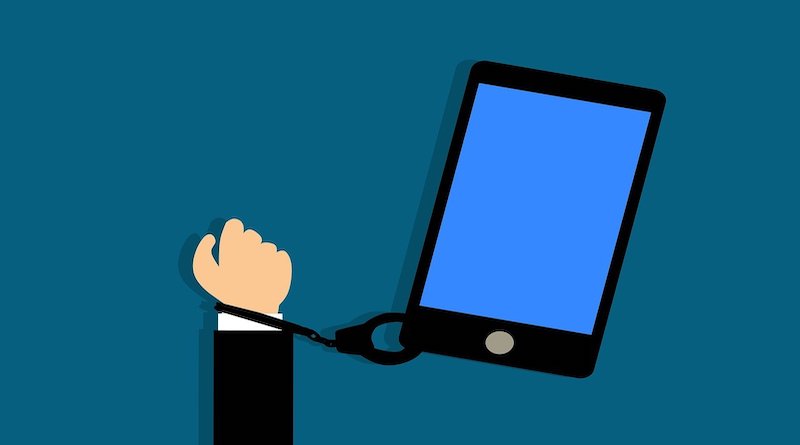Are You Addicted to Your Smartphone?
Table of Contents
Cell phones have become an indispensable tool nowadays – like a cell phone repair shop software for a repair store. It is powerful and versatile, and you’d hardly find someone who doesn’t call it a necessity now. Look around, and you’d see people are glued to their cell phone screens – for social media or otherwise.
Now the question arises: is this attachment just a 21st-century cultural phenomenon or a genuine, life-altering addiction? We will explore this in this article by discussing this phenomenon from different angles.
Also Read: Spy app for android
Let’s get into it.
Is cell phone addiction really a thing?
Few Research Center reports that 81 percent of Americans now own smartphones — this is up from just 35 percent in 2011. And over the past five years, Google Trends indicates that searches for “cell phone addiction” have likewise been rising.
This pathological use of cell phones has introduced a raft of new terminologies, such as:
· Textaphrenia: the fear that you cannot send or receive texts (like seriously?)
· Nomophobia: the fear of losing your cell phone
· Phantom vibrations: this is a feeling that your cell phone is vibrating in your pocket
In any case, there is little to no doubt that excessive cell phones cause problems for people nowadays.
But the debate is still raging among medical and mental health professionals about whether problematic cell phone use is truly an addiction or the result of some sort of impulse control issue. Medical professionals have a relevant reluctance to term addiction to something other than habitual substance abuse, but some medical professionals do recognize one behavioral addiction: compulsive gambling.
It’s worth noting that there are some important similarities between cell phone overuse and behavioral addictions like compulsive gambling. The similarities include:
· Difficulty in limiting your behavior
· Loss of control
· Tolerance: the need that one feels in order to get the same feeling
· Withdrawal: frustration and anxiety when certain behavior isn’t practiced
· Severe negative consequences
· Relapse: Picking up the habit again after periods of avoidance
Let’s talk about the Dopamine connection
Do you know the similarity between cell phone overuse and behavioral addiction? That is the hormone Dopamine that is pumped in your body in both cases. Dopamine reinforces compulsive behavior in human beings.
Dopamine is a feel-good chemical that is released in the brain in rewarding situations. For many people, social interaction stimulates the release of dopamine. Since most people use their cell phones for online social interactions, dopamine is secreted in their bodies which keeps them busy with their cell phones more than usual – and there is a persistent urge to check their notifications (by the way, an efficient repair shop software can send automated notifications to its customers)
You would be amazed to know that app programmers intentionally design all these applications to make you keep coming back for more. For example, they use enticing colors to attract cell phones to open their apps and check notifications.
That cycle can lead to a tipping point: when your phone ceases to be something you enjoy and becomes something you’re virtually compelled to use.
You can also give your repair store customers dopamine when you give them excellent customer service, which is possible by having a cell phone repair shop software in a repair store.
Who is at risk?
The medical community agrees on the observation that younger people, especially adolescents, are at more risk when it comes to developing cell phone addiction. And there are several studies that show that cell phone usage peaks during the teen years and gradually declines thereafter.
For girls, dependent use patterns may develop because phones eventually turn into important tools of social interaction, whereas boys demonstrate a greater tendency to use phones in risky situations as compared to girls.
At the same time, there are researches that reveal that several personality traits and conditions have been associated with problematic cell phone use. This includes:
· Low impulse control
· Low self-esteem
· Anxiety
· Depression
· Being highly extroverted
What are the symptoms of cell phone addiction?
How can you conclude that someone has a cell phone addiction? Some of the signs are following:
· You wake up numerous times at night to check your cell phone
· You immediately use your cell phone the moment you get alone
· You get anxious when you do not have your cell phone with you
· You have been in an accident or injury because of your cell phone use
· People who care for you are concerned about your cell phone usage
· You spend a lot of time using your cell phone – like repair store employees love using POS software.
· The excessive use of your cell phone is interfering with your job performance or relationships
What are the side effects of phone addiction?
One of the hallmarks of any addiction is keeping up the compulsive behavior, even when it can cause severe negative consequences. One of the most common examples is when someone keep using their cell phone even after having an accident – driving while texting is dangerous because you take your eyes off the road and your mind is off driving.
The dangers of using a cell phone while driving are widely known, yet people ignore the risk in pursuit of the small jolt of connectedness a phone provides.
Conclusion
Cell phone addiction is a real thing, and it is important to realize if you are addicted to your cell phone. Efforts then should be made to get rid of this addiction.
If you are a cell phone repair store, having a cell phone repair shop software is an absolute necessity.
